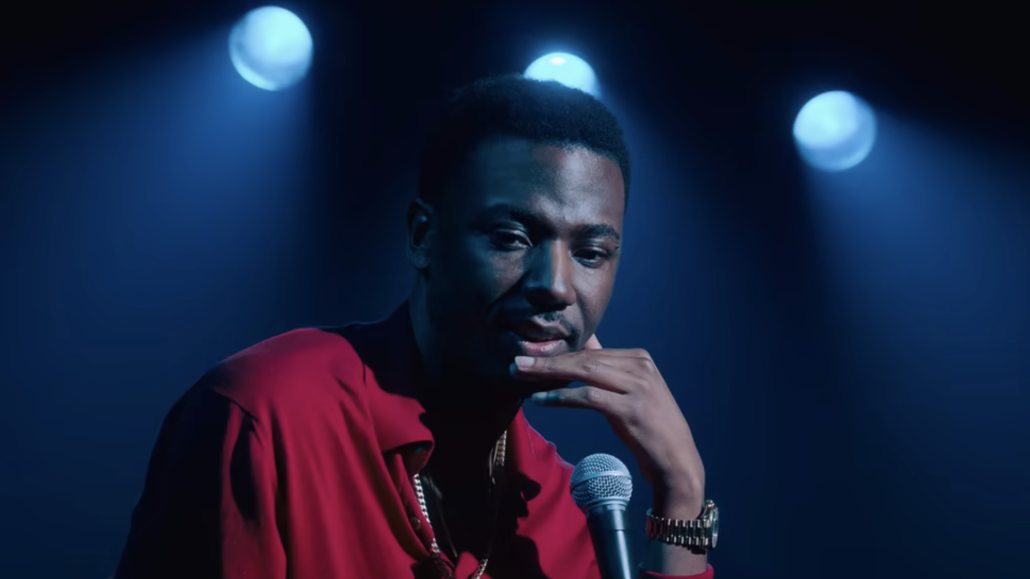Who Cares?: The new age of stand-up comedy

In the world of stand-up, the days of “Women be shoppin” and “How about airline food?” are out, and curling up in a ball and sobbing are in.
Many people claim comedy has lost its bite — that politically correct humor is destroying the genre. Nothing could be further from the truth.
Todd Phillips, well-known as the director of “Joker” (2019), claims “woke culture” has ruined comedy, which is why he made the brave decision to quit the genre, devastating everyone waiting for a fourth installment of “The Hangover.” Ricky Gervais can’t seem to stop sharing a similar sentiment, most recently deciding to insert himself in the Chris Rock-Will Smith dilemma by going after Jada Pinkett Smith.
Despite such claims, anti-woke comedy is flourishing. Gervais’ entire new stand-up tour is dedicated to getting canceled, making it his duty to heroically fight against political correctness. Louis C.K. and Dave Chappelle are also both thriving in the face of the woke culture they claim is ruining comedy, with C.K. even recently winning a Grammy.
Still, these same men continue to say new stand-up comedy is weak fluff, not at all similar to the hard-hitting and groundbreaking transphobia they built their careers on.
Yet, the latest and greatest stand-ups are hitting the audience harder than ever before. That’s because the days of ranting about your wife to a crowd have been replaced with raw, devastating and dark confessions.
In December 2020, James Acaster premiered his special, “Cold Lasagne Hate Myself 1999,” after the success of his 2017 Netflix original, “Repertoire.” The four-part special saw Acaster playing different characters, such as a man in witness protection, while slyly incorporating aspects of his real life. However, “Cold Lasagne Hate Myself 1999” was unabashedly personal.
Funnily enough, the very start of his two-act special is a monologue calling out Gervais for using transphobia as comedy. Acaster then segues into bits about his adolescence and Brexit. However, the stand-up takes a turn in the second act, where Acaster speaks bluntly about his struggle with mental health and suicidal ideations — a steep departure from his past work focused on football chants and gluten-free bread. If his name doesn’t ring a bell, you may know Acaster from the “Started making it. Had a breakdown. Bon Appetite” meme. While that meme has spread everywhere, Acaster divulges that the moment was his lowest mentally — an uncomfortable backstory for those who have laughed at the image set.
The norm of stand-up comedy is to set up a story and end it at a punchline; there is no need to speak on the aftermath or include details. However, Acaster specifically starts at the punchline to transition into the aftermath that most traditional comedians would ignore to prioritize laughs.
Acaster is nowhere near being the first comedian to subvert a previously used punchline into serious discussion.
Hannah Gadsby’s 2018 Netflix Special, “Nanette,” represented a new phase in her life, a time where she foregoes the self-deprecating humor that she built her career on to detail the traumatic experiences that brought her to the stage. She begins the show as normal but abruptly announced that she was “quitting comedy” before delving into the struggles she experienced as a lesbian woman. While some comedic moments remained, her comedy show was not so much about laughs as it was about telling her story.
Gadsby specifically takes time to tell her coming out story, something she has done in other specials, but this time, she does not end with a punchline. This time, she talks about the aftermath of coming out, the part of coming out where her family did not accept her and the part where she was brutalized and assaulted, which she pushed to the sides for so many years to entertain audiences.
This trend, of comedians sharing honest coming out stories, continues with Jerrod Carmichael’s HBO special, “Rothaniel,” which premiered earlier this month. During the special, Carmichael comes out as gay. While many past stand-ups use their coming out story as a bit, Carmichael is not doing that; he is simply coming out and sharing the pain that came with it. He details the strain his queerness placed on his relationship with his mother, the person he considered himself closest to who now tries to “pray the gay away.”
The special, which lasts less than an hour, breaks the norms of stand-up. Whereas most comics try to fill up their time with as many jokes and bits as possible, “Rothaniel” thrives on extended, devastating moments of silence. Instead of the comedian talking to members in the audience, the audience calls out to Carmichael, and not just heckles, but asks deep questions about his self-identity and mother. It’s not so much a comedy show as it is a therapeutic experience.
While punchlines are speckled throughout, “Rothaniel” is not an easy watch. Neither are “Cold Lasagne Hate Myself 1999” or “Nanette.” The movement of comedians no longer focusing on pure comedy is growing exponentially. The future of comedy is truth-telling, and the ugly, hard-to-hear truths are at the center.
Kimberly Aguirre is a freshman dissecting the most off-base entertainment news. Her column, “Who Cares?” runs every other Wednesday.

